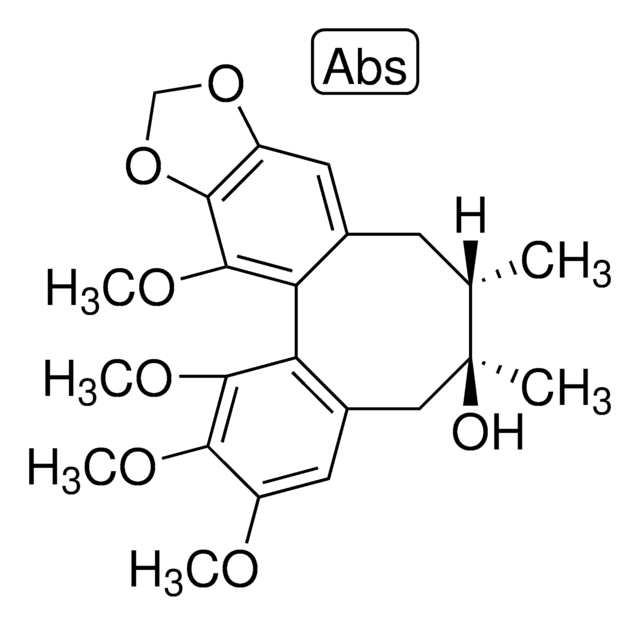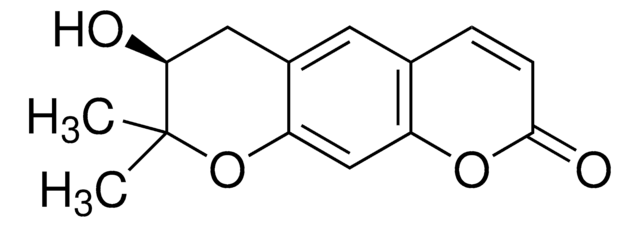SML0786
Decursin
≥97% (HPLC)
Synonym(s):
(+)-Decursin, (7S)-7,8-Dihydro-8,8-dimethyl-2-oxo-2H,6H-benzo[1,2-b:5,4-b′]dipyran-7-yl 3-methyl-2-butenoate, 3-Methyl-2-butenoic acid (7S)-7,8-dihydro-8,8-dimethyl-2-oxo-2H,6H-pyrano[3,2-g]-1-benzopyran-7-yl ester
About This Item
Recommended Products
biological source
Radix peucedani
Quality Level
Assay
≥97% (HPLC)
form
powder
optical activity
[α]/D +120 to +160°, c = 0.5 in chloroform-d
color
white to beige
solubility
DMSO: 5 mg/mL, clear
shipped in
wet ice
storage temp.
−20°C
InChI
1S/C19H20O5/c1-11(2)7-18(21)23-16-9-13-8-12-5-6-17(20)22-14(12)10-15(13)24-19(16,3)4/h5-8,10,16H,9H2,1-4H3/t16-/m0/s1
InChI key
CUKSFECWKQBVED-INIZCTEOSA-N
Looking for similar products? Visit Product Comparison Guide
Biochem/physiol Actions
Features and Benefits
Storage Class Code
11 - Combustible Solids
WGK
WGK 3
Flash Point(F)
Not applicable
Flash Point(C)
Not applicable
Certificates of Analysis (COA)
Search for Certificates of Analysis (COA) by entering the products Lot/Batch Number. Lot and Batch Numbers can be found on a product’s label following the words ‘Lot’ or ‘Batch’.
Already Own This Product?
Find documentation for the products that you have recently purchased in the Document Library.
Articles
We offers many products related to Nuclear Receptors (Steroids) for your research needs.
We offers many products related to Nuclear Receptors (Steroids) for your research needs.
We offers many products related to Nuclear Receptors (Steroids) for your research needs.
We offers many products related to Nuclear Receptors (Steroids) for your research needs.
Our team of scientists has experience in all areas of research including Life Science, Material Science, Chemical Synthesis, Chromatography, Analytical and many others.
Contact Technical Service







